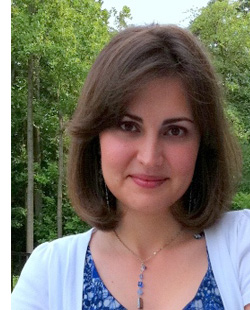
Organizing the IONS conference in Moscow had a tremendous impact on my global outlook—and my career. It contributed to my professional development by fostering skills in networking, project management, community building, fundraising and leadership.
The International OSA Network of Students (IONS) is a close-knit community of students who are united in our passion for traveling, visiting different research centers, meeting new friends and experiencing new cultures. Started six years ago, the IONS project has grown into a global network that connects young optics researchers around the world.
By the time I attended my first IONS conference—IONS-5 in Barcelona, Spain, in 2009—I had heard a lot about this project. I expected to meet new people, listen to interesting talks, have fun, and return to Moscow (where I was studying at that time) full of new ideas.
But I didn’t fully realize that I would take part in such a dynamic exchange of information and be surrounded by very enthusiastic people from many different cultural backgrounds. Such deep impressions defined my long-term involvement with IONS and led me to organize a conference in Moscow.
Skills obtained, lessons learned
I chaired the organization of IONS-8, which took place in late June 2010 at Lomonosov Moscow State University and Bauman Moscow State Technical University, Moscow, Russia. Working with students from four Moscow and three international OSA/SPIE student chapters had an enormous effect on my professional development.
Looking back now, I cannot imagine any other activity that would have given me the same depth of experience or the same opportunity to sharpen professional skills such as networking, management and leadership.
The student chapter itself is a miniature model of a research group or company. The crucial skills that are essential for success include bringing an idea to life, marketing, recruiting people, managing teams, advertising and raising funds. Through IONS, students have a unique opportunity to develop these and other valuable proficiencies. While any student chapter activity contributes to students’ professional development, organizing an international conference is the most challenging: It has a high level of complexity and requires intensive planning.
The biggest challenge in the IONS-8 organization process was building a strong team at the very beginning and distributing duties among people. Every student in our team concentrated on a specific area, such as sponsorship, preparing documents for the hosting universities, advertising, food arrangements, etc.
Together we discussed the general issues of the conference program or housing arrangements for students and keynote speakers. My work as a coordinator was best described by one of my friends: “The conference coordinator does nothing and everything.” Although there is a student responsible for every organizational area, the coordinator is involved in every part, helping to solve problems and tracking overall progress against the schedule.
It was essential for me to have the assistance of someone reliable in planning the conference. In my case it was Vladimir Lazarev, OSA/SPIE BMSTU chapter president. However, perhaps the most important lesson that I learned is that effective responses from a group of students require personal engagement; that is, if you want a quick response it is important to ask individuals by name.
The process
The first thing we did was settle on approximate days for the conference. IONS Moscow was longer than a typical IONS conference, lasting five days. We created the program and looked for resources to invite speakers for professional development and career networking sessions.
We collaborated with several Moscow and international chapters who generously offered their traveling lecturer grants. By working with the project team to find this additional funding, I helped to build fundraising skills that will be helpful in my scientific career.
Another useful experience was my work with industry partners on sponsoring the event. In the spirit of international collaboration, my co-organizers, Mena Issler from ETH Zurich, Switzerland, and Desire Whitmore from the University of California, Irvine, in the United States, contacted companies with a proposal to sponsor our conference. It was my first experience getting in touch with industry. Working with Desire and Mena on these proposals broadened my networking and grant-writing skills and showed me fundraising approaches used in different countries based on cultural backgrounds.
After setting the conference calendar, we concentrated on program highlights. In a typical IONS conference, the first couple days are comprised of presentations from students about their research and student chapter activities, lab tours, talks from keynote speakers and professors at the hosting institute, while the last day consists of social events and sightseeing. What really differentiates IONS from other conferences is its amazingly friendly atmosphere. We focused on creating this environment by scheduling many social events, such as a welcoming reception, coffee breaks, evening meetings and sightseeing each day.
Positive IONS
IONS organizers have the good fortune of interacting with past organizers who share their experience with the next generation through personal contact and via the IONS Guidebook—a brochure that contains advice and notes from all previous organizers. It is an amazing opportunity to learn from the collective experience of many students.
I consider networking with experienced IONS leaders and students outside of our organization committee members to be one of the most valuable experiences in broadening my horizons, and it had an immense influence on my personal growth. For me, IONS is much more than another research conference; it is the forum through which I have met many good friends.
Zuleykhan Tomova (ztomova@umd.edu) is a Ph.D. student at the University of Maryland, College Park, Md., U.S.A and International Coordinator of IONS Project.
